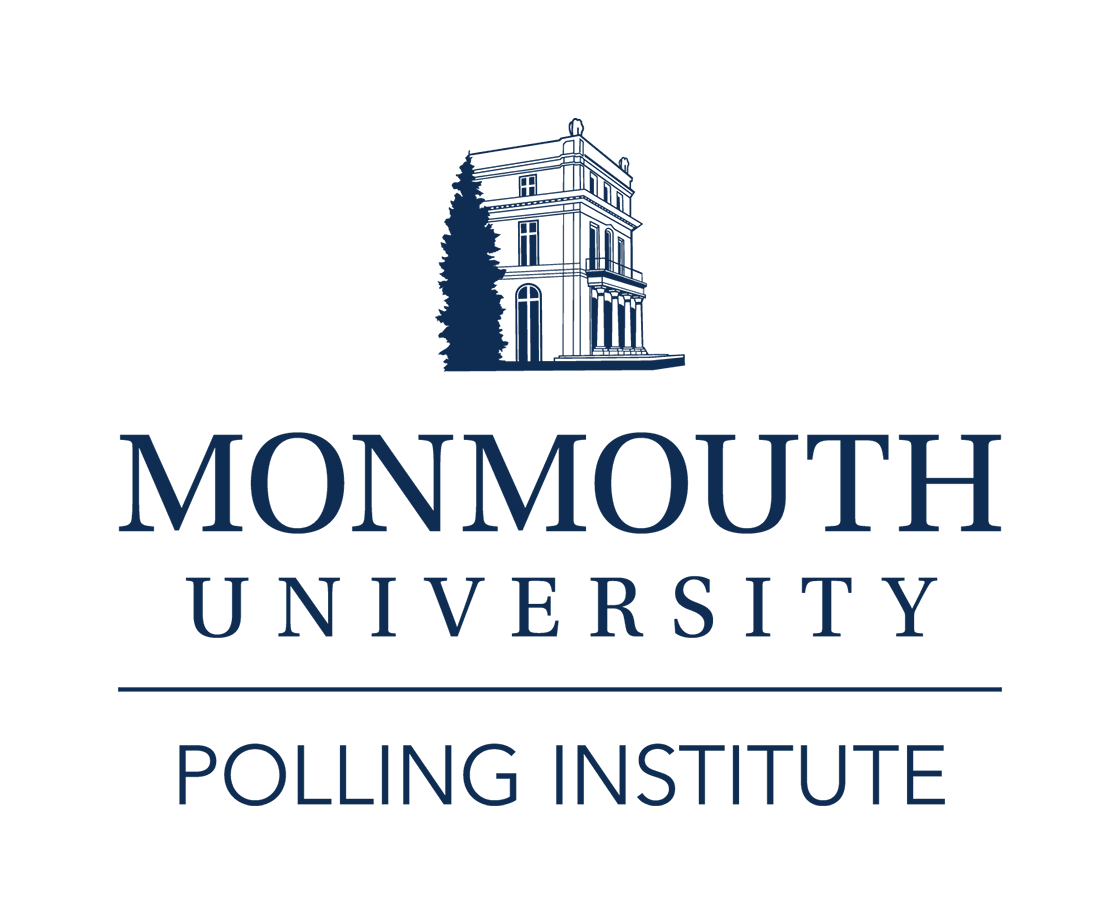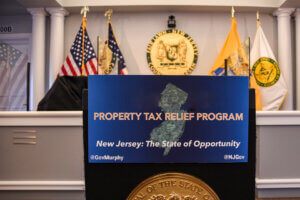I. Introduction
In order to assess New Jerseyans’ opinion on school funding especially for poor urban districts, the Association for Children of New Jersey (ACNJ) commissioned the Monmouth University Polling Institute to conduct an independent statewide survey of New Jersey residents.
The survey involved telephone interviews conducted between September 28 and October 3, 2006 with a random probability sample of 803 New Jersey residents 18 years old and older. Percentages for this survey have a sampling error of ±3.5 percent at a 95 percent confidence level with 50/50 proportions. This report also describes findings for certain demographic groups in the population. Smaller sub-groups will have a higher margin of sampling error. A more comprehensive description of the research methodology is included in the appendix.
This report and the interpretation of the survey findings are the sole responsibility of the Monmouth University Polling Institute.
II. Educational Quality in New Jersey
| QUALITY OF EDUCATION IN NEW JERSEY | |||||
| Excellent | Good | Fair | Poor | No Opinion | |
| All New Jersey Schools | 12% | 46% | 25% | 9% | 7% |
| Your Local Schools | 19% | 47% | 20% | 7% | 7% |
| Poor, Urban Schools | 4% | 15% | 30% | 36% | 15% |
When state residents are asked to rate the job public schools are doing in New Jersey, 12 percent say excellent, 46 percent good, 25 percent fair and 9 percent poor. The combined 58 percent for “excellent/good” is a high point for this question in public polls going back to 1978.
When asked about the quality of education that their own local public schools are delivering, two-thirds give either an excellent (19%) or good (47%) rating. Another 20 percent say their local schools are only fair and 7 percent rate them as poor.
In contrast, when asked to rate the job schools in poor urban areas are doing, only 4 percent say excellent and 15 percent good, while 30 percent rate these schools as fair and 36 percent as poor. Interestingly, residents of the state’s “Abbott” districts seem to differentiate between their own schools and those in “poor, urban” areas. About half of these Abbott residents (48%) give their own schools a positive rating but only 19 percent say the same about poor, urban schools in New Jersey (Table 1).
III. State Education Funding and Property Taxes
While a small majority of New Jersey residents feel their own school district is adequately funded, the opposite is true for urban districts (Table 2). Overall, 36 percent feel their own district has enough money available to provide a quality education and an additional 12 percent feel that their district is over-funded. On the other hand, 46 percent feel that, even with escalating property taxes, their district needs additional funding. This number is similar to public polls conducted in the prior decade. [1]
However, when asked to assess the funding levels of urban schools, a majority of 56 percent of New Jerseyans feel these schools are under-funded, compared to 30 percent who say the funding levels are adequate and 8 percent who say they are over-funded. Importantly, those who feel that urban schools need additional funding include 53 percent of registered voters and 50 percent of those who live in non-Abbott districts.
Overall, New Jerseyans appear to be concerned that efforts to lower property taxes could impact the quality of education in the state. Nearly two-in-three (64%) would oppose any property tax relief measures that would leave less money available for public schools in the state. This includes 65 percent of registered voters, 64 percent of homeowners, and 63 percent of non-Abbott residents.
Poll respondents were asked how willing they would be to consider six different measures to significantly reduce their property taxes. Proposals that would either cut funding of direct student services or simply shift the burden of taxation are the least popular. Those that would streamline school districts administratively tend to be viewed more favorably.
Specifically, 72 percent of New Jerseyans would not be willing to see cuts in extra-curricular programs to gain property tax relief. Similarly, 66 percent are not at all willing to accept an income tax increase and 61 percent feel the same about a sales tax increase. While 45 percent “might” consider cuts in supplemental state funding for poor school districts, a majority of 52 percent are definitely opposed to this.
| WILLINGNESS TO CONSIDER DIFFERENT PROPERTY TAX RELIEF MEASURES | |||
| Very willing | Somewhat willing | Not willing | |
| Rather than having local government collect property taxes, having state government collect property taxes and then redistribute the funds to local school districts | 22% | 36% | 37% |
| Merging your school district with other districts in your county | 26% | 30% | 40% |
| Reducing the amount of supplemental funding the state gives to poor school districts | 16% | 29% | 52% |
| Raising the sales tax | 13% | 24% | 61% |
| Raising the income tax | 8% | 23% | 66% |
| Cutting extra-curricular programs in your own local schools, such as after-school programs and athletics | 11% | 17% | 72% |
On the other hand, a majority of state residents are at least somewhat willing to consider a centralized, statewide property tax collection system (58%) or a county-wide merger of their school district (56%) as ways to lower property taxes significantly.
IV. Educational Equity
Regardless of what they feel about specific tax and funding proposals, New Jerseyans overwhelmingly agree that all children in the state should have equal access to educational opportunities. Furthermore, they feel that due to economic disparities, the same educational opportunities are not universally available and it is fair for the state to provide supplemental funding in areas with high concentrations of poverty.
The poll found that nearly all New Jerseyans (96%) agree with the idea that children in the state’s poorest communities should have the same educational opportunities as those who live in the wealthiest areas. Unfortunately, only 19 percent of the public believes that such educational equity is actually the case in New Jersey. Another 71 percent say that students in poor, urban schools do not get the same quality of education as children living in wealthier, suburban districts.
The state currently provides extra aid to 31 urban districts known as “Abbott” districts. These districts serve nearly one-quarter of all school children in New Jersey. While these “Abbott” designations have been in place for over a decade, few are familiar with the term – only 16 percent are very familiar and 24 percent are somewhat familiar, while 6-in-10 (59%) have not heard the term before. Even among residents of Abbott districts, fewer than half (47%) say they have heard of the “Abbott” term.
| OPINIONS ON EDUCATIONAL EQUITY | ||
| New Jersey Adults | Registered Voters | |
| Children in state’s poorest communities should have same educational opportunities as those in wealthy areas | 96% | 96% |
| It is fair that the state provides extra aid to Abbott districts to overcome disadvantages of poverty | 72% | 72% |
| While all poor children deserve help, areas with greater numbers of poor students should get extra aid | 75% | 74% |
| Educational quality is not the same in poor and wealthy areas | 71% | 70% |
Regardless of how much they know of the Abbott specifics, a 72 percent majority feel it is fair that the state provides extra aid to these districts to help children overcome some of the disadvantages of poverty. Only 22 percent of residents say it is unfair to provide additional state money to these areas. Support levels are above 7-in-10 for registered voters and also for residents in all types of communities (Abbott/non-Abbott, city/town/suburb) and of all income levels.
The survey results also indicate the public feels that certain communities should get extra help due to district-wide issues they face. Fully 3-in-4 New Jerseyans (75%) agree that while all poor children around the state deserve extra help, some areas have a greater number of poor students and these communities should get extra aid to help overcome the disadvantages that go along with living in those areas. Only 20 percent disagree with this statement.
V. Accountability
The survey also looked at issues around accountability. Accountability in how money is being spent in urban schools is an important issue for state residents, but it is also an important issue in suburban school districts as well.
Overall, without reference to Abbott districts or state aid for Abbotts, 32 percent of New Jerseyans feel that the state’s urban schools are succeeding while 54 percent say they are not succeeding (Table 3). Those who are very familiar with Abbott districts are somewhat more likely to say urban schools are not succeeding (70%).
Respondents who felt urban schools are not succeeding were presented with a list of seven possible reasons for this. The top reasons according to these respondents are wasteful spending – 68% say this is a major reason – and lack of parental involvement (61%).
About half say lack of state accountability for performance (52%) and inadequate funding (48%) are major reasons why these schools are not succeeding. Interestingly, among urban residents, these latter two reasons are named as major reasons by 6-in-10, putting them at the same level as the top two overall reasons for this demographic group.
Only 4-in-10 (41%) of those who say urban schools are not succeeding put the blame on systematic issues, namely that it is too difficult to overcome all the disadvantages of poverty. Just 1-in-4 (27%) feel that lack of teacher dedication is a major reason for the state of urban schools, and only 14 percent write off urban children’s ability to learn as a major reason why these schools may not be succeeding.
It’s important to put these issues in context, particularly the spending concern. While wasteful spending is a concern for urban schools, it is an issue in suburban districts as well. Among those respondents who tab wasteful spending as a reason, 40 percent say that wasteful spending is worse in urban districts than in their own local school district, but a majority feel that the amount of wasteful spending in these urban areas is either the same (38%) or less (17%) than it is in their own home districts. This finding holds as well when the views of just non-Abbott residents are examined.
In sum, there appears to be a joint sentiment for both more spending and greater oversight of that spending as a formula for urban schools’ success. The public seems to feel that most systematic disadvantages in urban districts can be overcome. The one that stands out as a continuing concern is the attitude and involvement of parents in those communities.
The survey also asked respondents to assess whether appropriate measures to account for how well schools educate their students are currently in place for both their own local schools and urban districts. In both instances, the presence of adequate accountability is a minority view (Table 4). In fact, more than half (55%) of New Jerseyans say their own district needs to institute better measures of accountability. A somewhat higher number (72%) say the same for urban districts. This finding holds regardless of whether the respondent feels urban districts get too much, too little, or adequate amounts of funding.
In a specific area of accountability, there is evidence that standardized test scores in Abbott districts have been improving over the past few years. Fully 73 percent of New Jerseyans say that such an improvement would reinforce their support of the additional funding these schools receive. Only 21 percent say they would oppose extra funding for the Abbotts even with improving test scores.
[Note 1] Eagleton Polls conducted in 1993 and 1996 found that 51% and 45%, respectively, of state residents felt their school district needed additional funding.
The questions referred to in this report are as follows:
1. Would you vote for or against a system of giving parents the option of using government-funded school vouchers to pay for tuition at the public, private or religious school of their choice?
2. Some people in New Jersey have proposed setting up an urban scholarship fund as a five-year pilot program. Low-income parents in select urban areas would be able to get scholarships from this fund to send their children to any private or public school participating in the program. The money for this program would come from voluntary contributions by New Jersey businesses. Any business that contributes to this fund would be able to take a credit on their state income taxes equal to the amount of their contribution. Would you support or oppose setting up this type of pilot program in New Jersey?
3. The state is considering different ways to fund education in New Jersey. Presently state school aid is given in a lump sum to each school district based on the cost of running the district. However, some believe that the state’s share of local educational funding should be based on an assessment of each individual student’s needs, where a dollar amount is attached to each student and sent to whichever school he or she attends. In general, does changing state aid from a district-based to student-based formula sound like a good idea or bad idea to you?
Click on pdf file link below for full methodology and results by key demographic groups.




